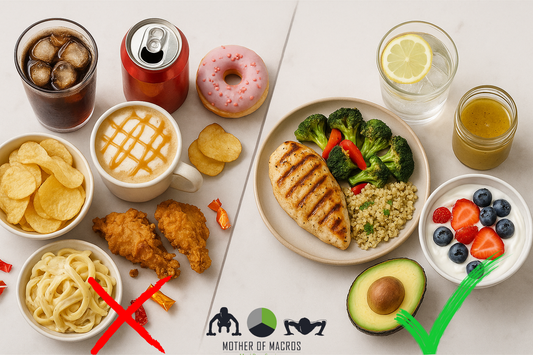Achieving your fitness goals is not just about lifting heavier weights or spending countless hours at the gym. It's about training smarter, understanding your body, and implementing strategies that yield optimal results. In this blog, we'll delve into the principles of smarter weight training that can help you see significant improvements in strength, muscle tone, and overall fitness.
1. Set Clear Goals
Before diving into any weight training regimen, define your goals. Whether you aim to build muscle, increase strength, improve endurance, or enhance overall fitness, having clear objectives will guide your training and keep you focused.
2. Prioritize Progressive Overload
Progressive overload is the cornerstone of effective weight training. It involves gradually increasing the intensity, volume, or resistance of your workouts over time. This progression stimulates muscle growth and adaptation, leading to visible results. Keep track of your workouts, increase weights gradually, and challenge yourself consistently.
3. Focus on Compound Movements
Compound exercises target multiple muscle groups simultaneously, making them highly efficient for building strength and muscle mass. Incorporate compound movements like squats, deadlifts, bench presses, rows, and overhead presses into your routine. These exercises engage more muscle fibers and promote functional strength.
4. Perfect Your Form
Proper form is paramount in weight training. It not only prevents injuries but also ensures that you're effectively targeting the intended muscles. Take the time to learn and practice correct lifting techniques. Consider working with a certified trainer initially to master form and technique.
5. Implement Periodization
Periodization involves organizing your training into distinct phases, each with specific goals and intensity levels. This structured approach prevents plateaus, promotes recovery, and optimizes progress. Incorporate phases of higher volume, intensity, and reload periods to keep your workouts varied and effective.
6. Include Recovery and Rest Days
Rest and recovery are as crucial as training itself. Allow adequate time for muscles to repair and grow stronger. Incorporate rest days into your schedule and prioritize quality sleep, hydration, and nutrition. Active recovery activities like yoga, stretching, or light cardio can aid in recovery without overloading muscles.
7. Nutrition Is Key
Your diet plays a significant role in weight training outcomes. Fuel your body with a balanced diet rich in lean proteins, complex carbohydrates, healthy fats, and essential nutrients. Adequate protein intake supports muscle repair and growth, while carbohydrates provide energy for intense workouts. Stay hydrated and consider supplements if needed.
8. Track Progress and Adjust Accordingly
Regularly assess your progress by tracking workouts, strength gains, body measurements, and overall performance. Use this data to adjust your training plan as needed. If progress stalls, reassess your goals, training variables, and recovery practices to identify areas for improvement.
9. Stay Consistent and Patient
Consistency is key in weight training. Stick to your workout schedule, remain committed to your goals, and trust the process. Results take time, so stay patient, stay motivated, and celebrate milestones along the way.
10. Listen to Your Body
Lastly, listen to your body's signals. Pay attention to signs of fatigue, soreness, or discomfort. Modify workouts, adjust intensity, or take extra rest as needed to prevent overtraining and promote long-term sustainability.
Incorporating these principles of smarter weight training into your fitness journey can lead to significant improvements in strength, muscle development, and overall performance. Remember, it's not just about lifting weights; it's about training intelligently and efficiently to achieve lasting results.




